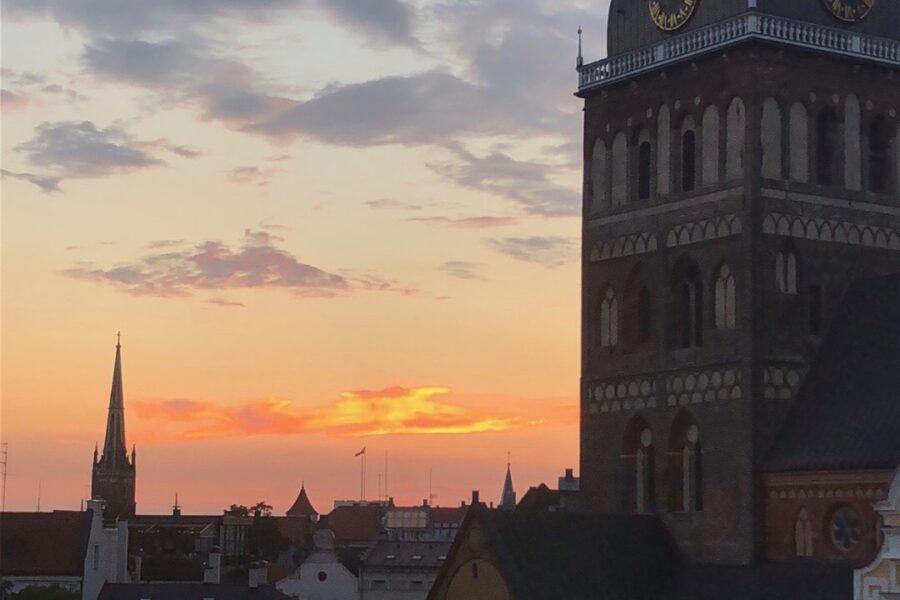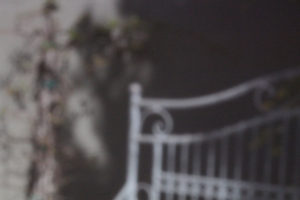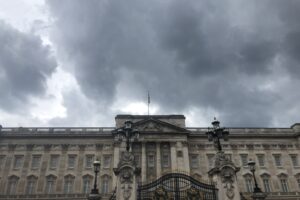Almost everything I know about my family and where they came from was told to me by my father. While my mother didn’t talk much about her past, he readily shared his life. Always over a meal; always accompanied by a history lesson. There were stories about his childhood, meeting my mother, losing his eye in a tragic work accident. But the majority of his tales, the ones he told over and over, circled around a handful of harrowing experiences: the Russian occupation, the German occupation, his conscription by the Nazis, POW camp, and the year he spent building the Canadian railway as a ticket to freedom. He told these stories from the time I was young until the end of his life. And I would listen, taken by the drama of his narratives, unable to relate to any of it at all.
Latvia, the country where both my parents were born and the one being occupied in his accounts, didn’t even appear on a map when I was growing up. It was absorbed by the Soviet Union at the end of the war. I never met any of my grandparents. Never heard their life stories. In fact, little evidence of our past actually exists–a handful of pictures, a scant collection of heirlooms, a family tree that reaches back just a few generations. The name Jaunzarins was invented by my dad’s father. It means young branch. He changed his surname as many people did when Latvia first gained independence in 1918, eager to purge their oppressive histories and create a new Latvian identity. He went on have two children, my late father and uncle, who collectively bore eight children to propagate the name. Suffice it to say, there are very few of us kicking around this world. I always get Sylvia Jaunzarins as a login name because, well, there’s just me.
The lack of connection I felt between myself and my parents–the world they came from and all the traumas they endured–resulted in my feeling rather homeless as a child. In truth, the idea of home and what it means has confounded me for most of my life. When young, I fantasized at length about living in a different house than our tiny bungalow. One with a cutout in the kitchen wall through which you could pass plates and then shutter to hide the mess. One where my parents were always conveniently out running errands. In my early twenties, I relocated to New York and regularly moved apartments. Partly because I was forever trying to improve my living situation (a quest most urbanites share), but mostly because I couldn’t lay roots. When a place became too familiar, I moved on. Nine times in eight years. Then came a relocation across the country. More moving and six new addresses before marriage and children finally forced me to stay put. And yet, even after all that transplanting, even with the security of a tight-knit family, I squirmed and brooded wondering if I would ever feel at home.
Sometime after my father’s death, I started to think about Latvia. I wondered if that mysterious country and all of the histories she held had something to do with my restlessness. I booked a trip for our family, the middle leg of our summer vacation. And though I called it research for a book, a belated 50th gift to myself, a history lesson for my kids, my expectation for catharsis was high. A big piece of me hoped that by visiting the home of my parents, everything would suddenly make sense: the stories my father told, my place in the world, the reason I’ve always been so damn serious. I pictured myself falling to my knees on the worn cobblestones and weeping with understanding for what my mother and father had endured. I imagined the spirits of my grandparents gathering me up and whispering in my ear, This is who you are. You are home. In my fantasy, I would feel the same relief that Saroo does in the last sequence of the film Lion, when he finally returns to the village where he was born and reunites with his long-lost mother. I wanted that moment.
Of course, that’s not what happened. Maybe for a short while when I stood on the land where my father grew up. Or when walking through the birch filled countryside where he summered as a boy as we tried to find our way back to a missed train stop. But that’s it. Because the city, and the people, and the energy that I witnessed wasn’t that of the occupied country my father left behind. Instead, it was bustling and kind and grateful and celebratory. In fact, every time I pressed our guide about the past, she changed the subject saying, “That was sad times. We are happy now. We are free.” Free, by the way, following the peaceful political demonstration of two million people who joined hands and formed a human chain spanning 420 miles across the three Baltic countries. Latvia is definitely not stuck in the past.
As children, we can’t help but carry the stories of our parents. Sometimes heavily as if they were our own, sometimes rejecting them outright as though they don’t exist. I did both. As much as I ran from their legacies, I held on tight. Wanting so badly to make sense of a part of my mother and father that I didn’t know; could never know. But here’s what’s transformative and what going back to the motherland taught me: Life moves on. Latvia, for all the heaviness of its past, is not bound by it. Much like I am not bound by the struggles of my parents. Though they shape me, they don’t define me. Though they live in me, I move forward. And that elusive home I’ve been searching for my entire life? Well, it’s been right here all along. Because what I figured out is that home is me.







